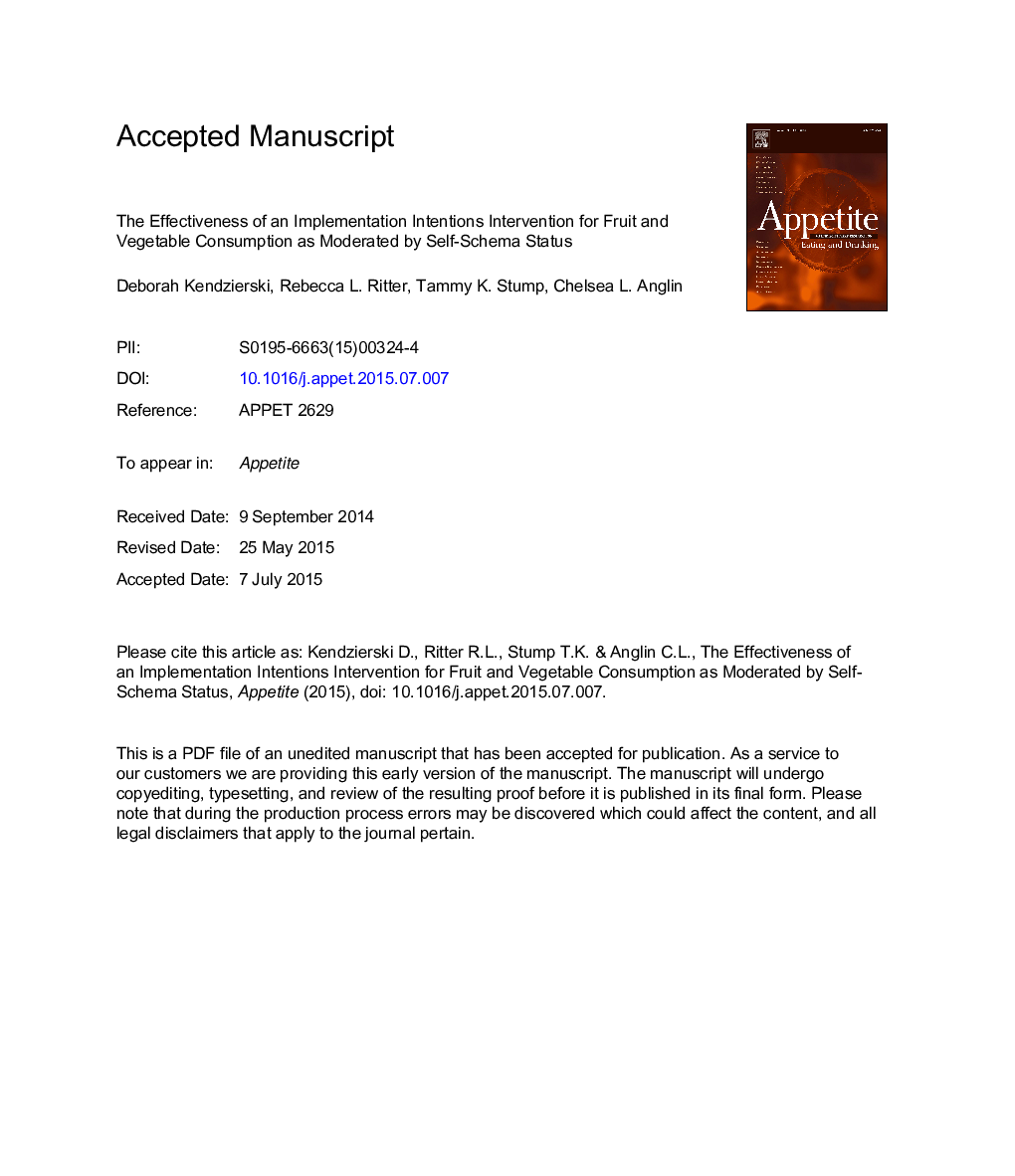| Article ID | Journal | Published Year | Pages | File Type |
|---|---|---|---|---|
| 7308553 | Appetite | 2015 | 46 Pages |
Abstract
Two experiments were conducted to determine whether self-schema status moderates the effectiveness of an implementation intentions intervention on nutrition behavior among university students not meeting relevant dietary guidelines. In Experiment 1, students were asked to eat at least 2 servings of fruit and 3 of vegetables daily for a week. Implementation intention condition participants listed what fruits and vegetables they would eat and when and where they would eat them; control condition participants did not. Among those who did not initially meet vegetable targets (n = 108), implementation intentions increased the vegetable consumption of healthy eater schematics, but not of nonschematics. There were no significant effects for fruit consumption among those initially not meeting fruit targets (n = 83). Experiment 2 replicated the moderating effect of healthy eater self-schema status in regard to the effectiveness of an implementation intentions intervention for vegetable consumption among undergraduates who were not initially eating at least 3 servings of vegetables daily (n = 62). Findings are discussed in regard to promoting healthy eating among university students, as well as the implementation intention, self-schema, and self-concordance literatures.
Keywords
Related Topics
Life Sciences
Agricultural and Biological Sciences
Food Science
Authors
Deborah Kendzierski, Rebecca L. Ritter, Tammy K. Stump, Chelsea L. Anglin,
